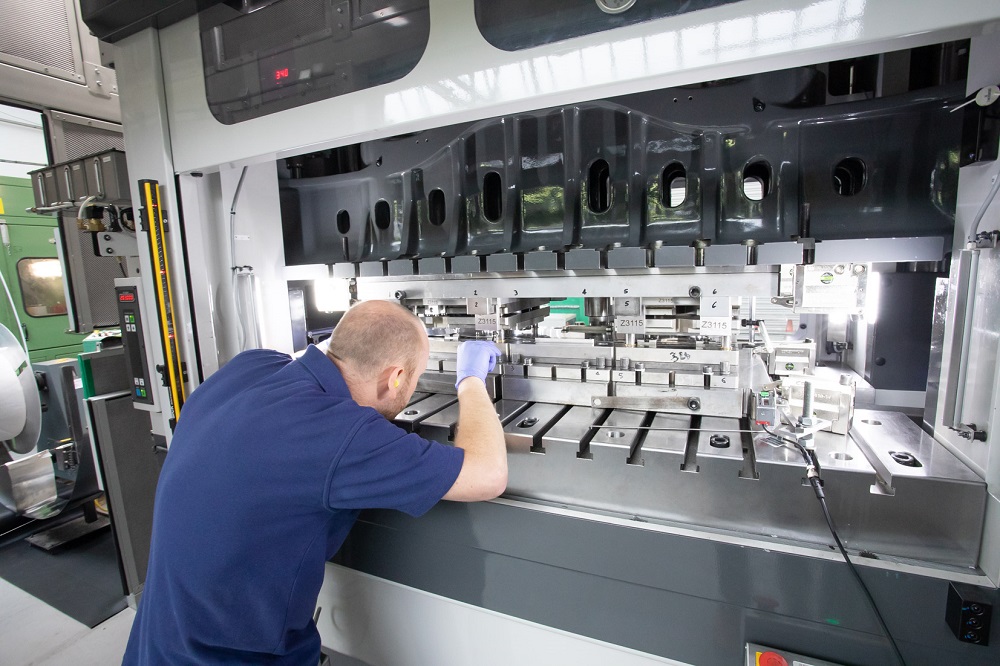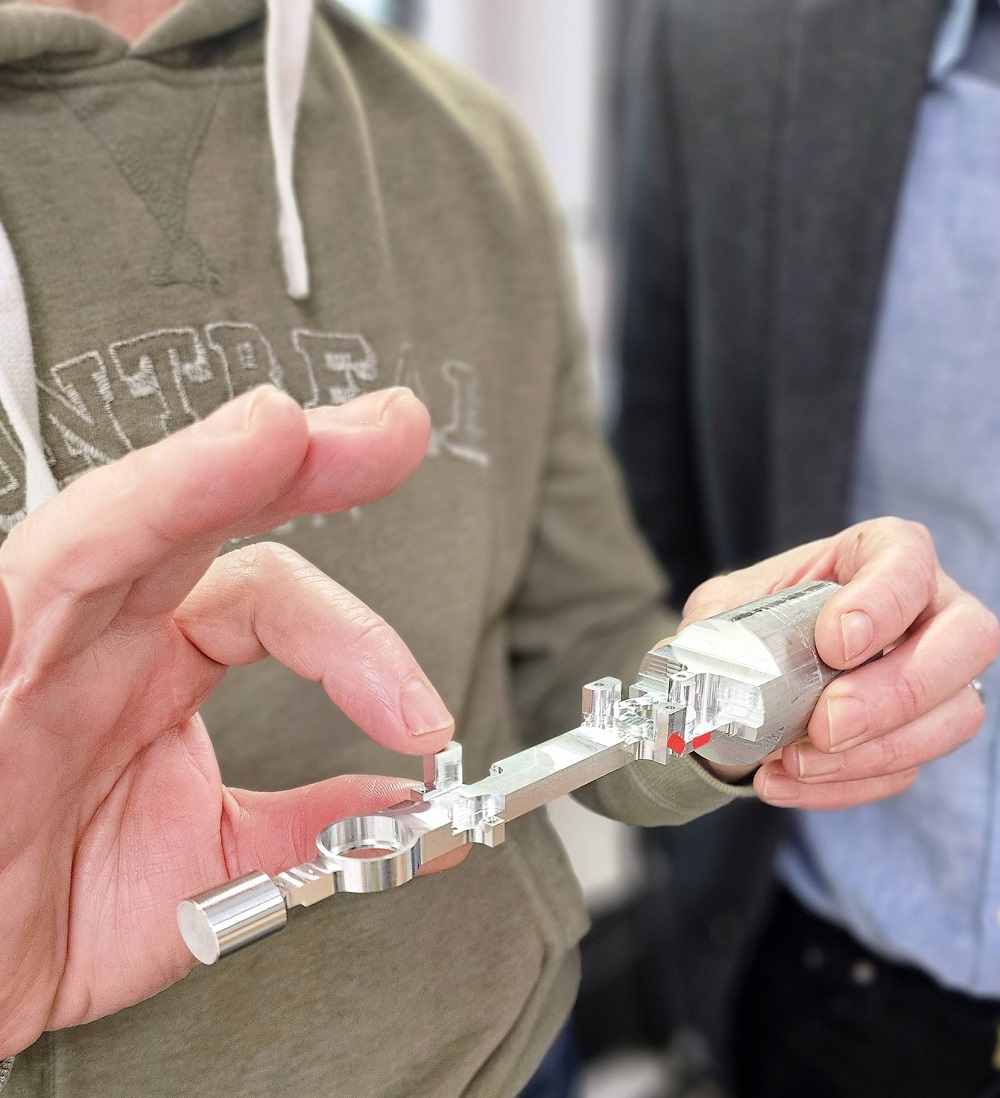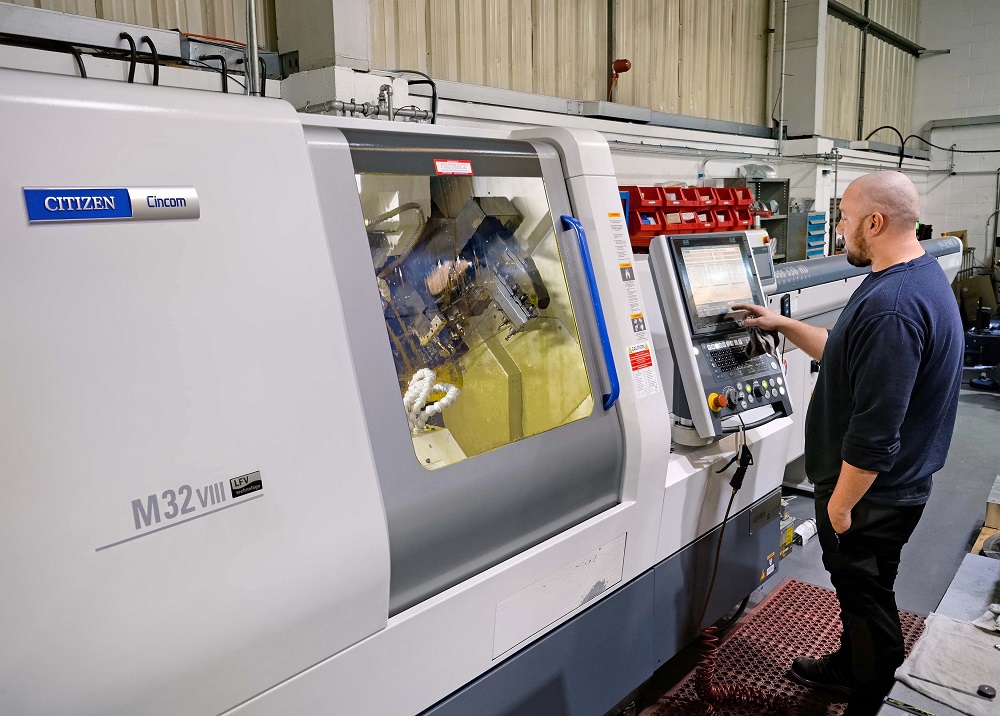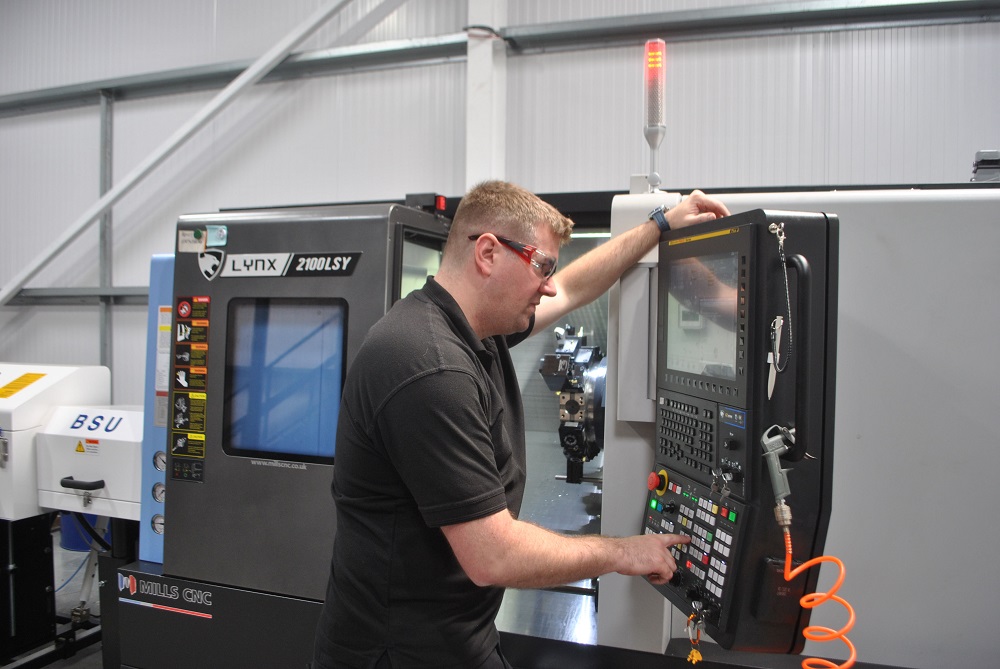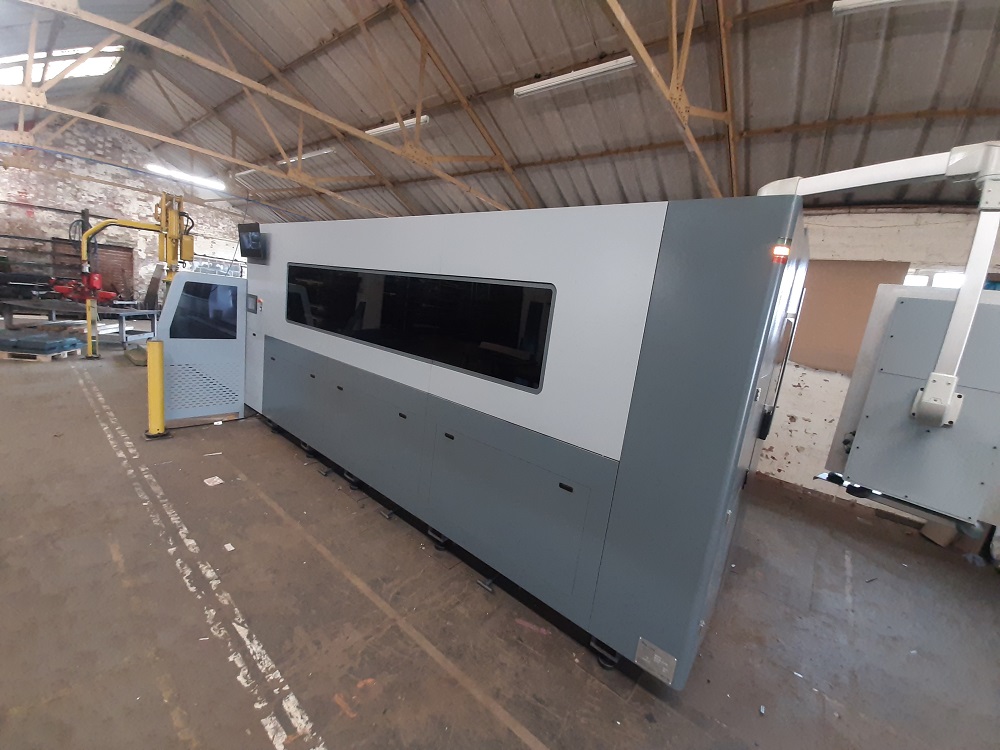With business booming at Wetherby-based fabrication specialist Kellys Welding, the company wanted to replace its pre-owned CO2 laser cutter with a new fibre laser. With a shortlist of ‘wants’ that included quality, speed, energy efficiency and a very competitive price, Kellys Welding spent nearly 12 months assessing the UK market. The company discovered that only an ACCURL fibre laser cutter from Axe & Status could meet its requirements and provide the impetus for further growth. Such has been the impact of the ACCURL Masterline 3105 that the monthly savings on electricity consumption alone pay for the finance on the machine. According to Kellys Welding, “it’s like having a laser cutter for free”.
Kellys Welding is a family-run business launched by owner Joe Kelly in 2017. In just seven years the company has grown from a one-man start-up to a 10-employee enterprise that is on track for a turnover of £1.3m in 2024.
The reasons behind this impressive growth are many, but ironically the company gained its first real break during the pandemic. Although welding jobs came to a halt, Kellys Welding was also selling raw material online, an activity that boomed.
“After the pandemic we had enough money to buy our first laser cutter, a pre-owned CO2 model,” says Kelly. “It was perfect at the time but we soon ran out of capacity due to our growing workload and the machine’s lack of speed. It also consumed a lot of electricity, so we started thinking about a replacement.”
By then, Kellys Welding had built up a robust customer base; sufficient to afford a brand new laser cutter. Around the same time, the company relocated to the unit next door, which at double the footprint would provide the perfect home for its new laser cutter. The question now, was which one to buy?
“We looked at lots of machines over a 12-month period,” states Kelly. “At first we only considered brands that were familiar to us, but soon realised they were way out of our price range. We started looking at other brands, including from Asia, but they were poor. We even went to see one in action. Although it was cheap and did the job, it seemed unsafe. It had a CE mark, but it only stood for ‘Chinese Export’.”
He continues: “Then we came across the ACCURL Masterline and knew it was the one for us. It’s had all of the right parts. A lot of machines from Asia come with parts we’ve never heard of. The ACCURL is different with its PRECITEC cutting head, for example. The machine also carries an official CE mark and features integrated Class IV safety systems. Axe & Status did some test cuts for us and we were very happy to proceed.”
Kellys Welding estimates that the ACCURL Masterline 3015 6kW fibre laser cutter from Axe Status is about eight times faster than the company’s previous CO2 laser cutter. Moreover, the ACCURL offers far more economic running costs.
“The ACCURL Masterline uses around five times less electricity than our CO2 machine, equating to a saving of around £4000 a month,” reveals Kelly. “These savings pay for the finance on the machine, so it’s like having a laser cutter for free!”
The company also reports that the ACCURL fibre laser uses far less gas and requires a lot less clean-up: parts come off the machine ready to weld. The CADCAM nesting software for the ACCURL brings further savings.
“We nested a job the other day for 5mm thick stainless steel. Whereas previously we would need three sheets, now it’s just two because the software can place parts closer together. At £500 a sheet, it’s a big saving.”
Kellys Welding laser cuts mild steel from 1 to 20mm thick, stainless steel from 1-12mm and aluminium up to 6mm. The company processes everything from 1-offs and small batches up to thousands. Investing in the ACCURL fibre laser is not only good news for Kellys Welding, but also for its customers.
“Keeping our CO2 laser would have created such a backlog with our workload today,” explains Kelly. “Our customers need a quick response and if we weren’t in position to meet their requirements they would quickly go elsewhere.”
Kellys Welding has a strong and growing pool of local customers in sectors that span construction, automotive and retail, with many now trusting the company as its main supplier. The business has seen its turnover double every year for the past five, based on an ethos of short lead times, competitive prices and top-quality products.
“As a small company we usually have the flexibility to price match and win orders. In contrast, many of our competitors have expensive monthly machine payments to meet. We looked at a European machine with the same specification as the ACCURL and it was over £500,000. The ACCURL was less than a third of that, with a three-year warranty for parts and labour.”
ACCURL Masterline fibre laser cutters offer high dynamics, achieving a positioning speed of up to 180m/min and acceleration of 3 g.Thanks to high-quality components, such as an IPG laser fibre source, PRECITEC ProCutter laser head and Rexroth servo drive, ACCURL laser cutters can operate continuously seven days a week, 365 days a year supported by automatic nozzle cleaning and graphite anti-burn technology. The machine is Industry 4.0 ready.
Kellys Welding is pleased to report that the ACCURL Masterline has proved totally reliable since its arrival, with the company enjoying high-level support from both Axe & Status and ACCURL.
“During commissioning we had the engineer from ACCURL optimise the parameters for every single material we cut here,” says Kelly. “Since then, Axe & Status set up a What’s App group. If we ever had a query we simply post a message and get a reply around two minutes later. The group is even linked with the ACCURL factory, which will be useful if we ever need their input in the future.”
For further information www.axestatus.com






